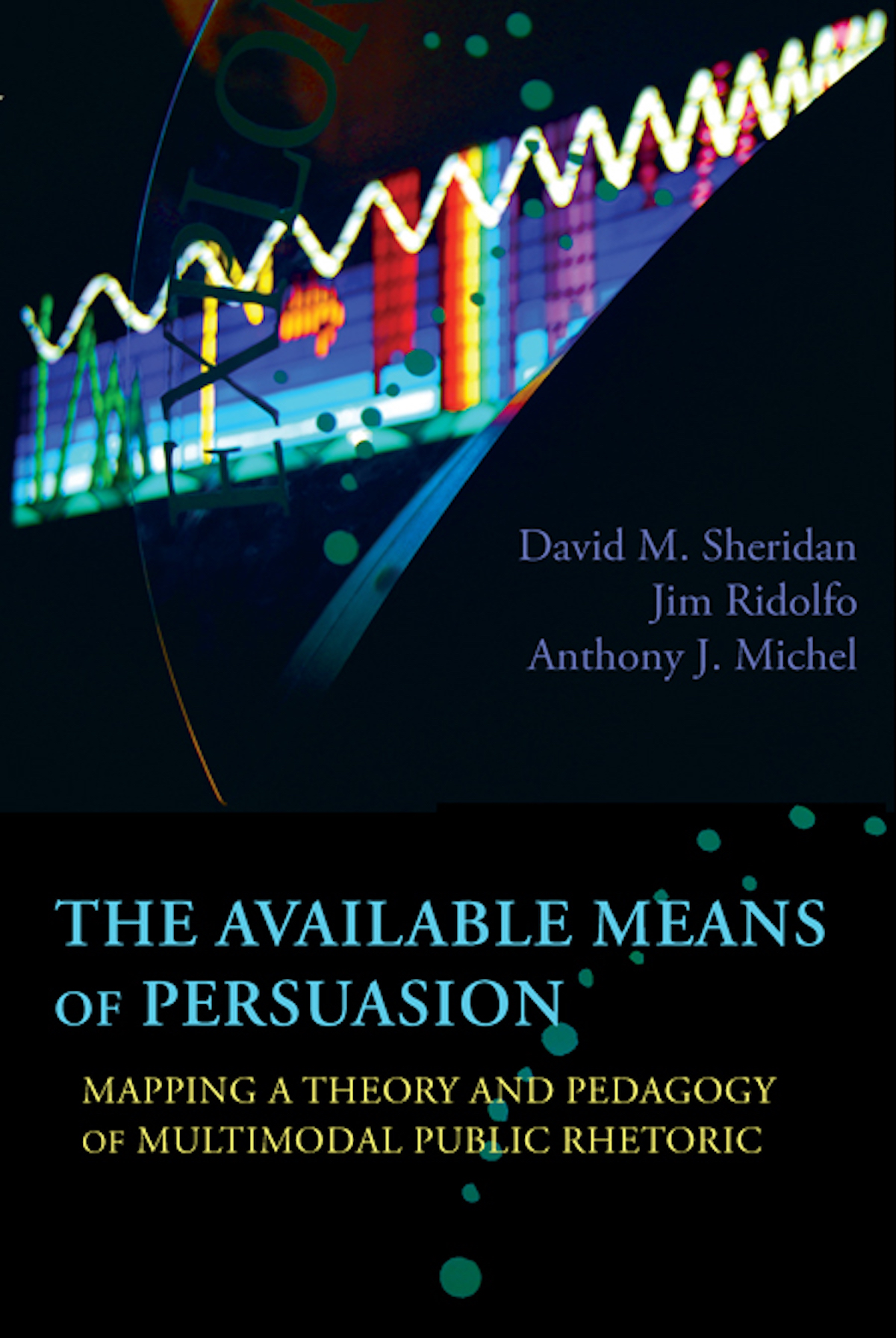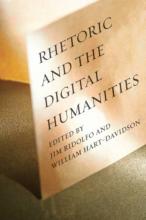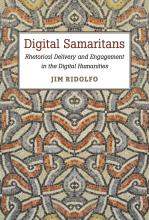The Available Means of Persuasion: Mapping a Theory and Pedagogy of Multimodal Public Rhetoric

From the beginning, rhetoric has been a productive and practical art aimed at preparing citizens to participate in communal life. Possibilities for this participation are continually evolving in light of cultural and technological changes. The Available Means of Persuasion: Mapping a Theory and Pedagogy of Multimodal Public Rhetoric explores the ways that public rhetoric has changed due to emerging technologies that enable us to produce, reproduce, and distribute compositions that integrate visual, aural, and alphabetic elements. David M. Sheridan, Jim Ridolfo, and Anthony J. Michel argue that to exploit such options fully, rhetorical theory and pedagogy need to be reconfigured. Rhetorical concepts such as invention, context, and ethics need to be transformed, which has important implications for the writing classroom, among other sites of rhetorical education.
Sheridan, Ridolfo, and Michel suggest an expanded understanding of the ancient rhetorical concept of kairos (the opportune moment) as a unifying heuristic that can help theorists, teachers, and practitioners understand, teach, and produce multimodal public rhetoric more effectively. In this expanded sense, kairos includes considerations of genre and dissemination through material-cultural contexts. Ultimately, they argue that culture itself is at stake in our understanding of multimodal public rhetoric. Important cultural categories such as race, class, gender, sexuality, and place, are produced and reproduced not just through the dynamics of language but through the full range of multimodal practices.



